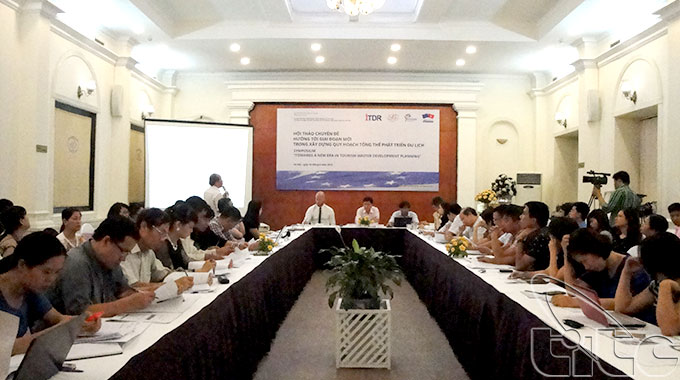Vietnamese and foreign experts gathered in Ha Noi on June 10 to give their opinions on building a master plan for the future growth of Viet Nam’s tourism sector.

According to Assistant Professor Dr Vu Tuan Canh, an expert from the EU-funded Environmentally and Socially Responsible Tourism Capacity Development Programme, designing a master plan is crucial for tourism development, helping the sector avoid environmental and social problems as well as inefficiency in economics and competitiveness.
He held that besides national and regional levels, it is necessary to make plans for localities to attract more tourists, enhancing the images of destinations and diversifying tourism development forms in urban and rural areas.
Planning quality at national and regional levels will also decide important orientations for planning at lower levels, he said.
Meanwhile, Professor Dr Martin Fontanari argued that market orientations are the basis for designing tourism growth strategies. He asserted that it is not procedure but approach that Viet Nam should change to make a long-term, sustainable and feasible plan.
Viet Nam should carefully analyse specific destinations, target customers and competitors, and State policies and direction on tourism so as to provide top quality products meeting the demand of different markets, he said.
Fontanari focused on the planning of Son Tra peninsular in central Da Nang city, pointing out advantages and weaknesses of the locality and made proposals on building new tourism products towards socially and environmentally responsible tourism.
At the same time, Pham Trung Luong, Vice Director of the Institute for Tourism Development Research under the Viet Nam National Administration of Tourism, pointed to shortcomings of Viet Nam’s tourism sector, including poor collaboration among ministries and localities in planning, leading to a shortage of information and mutual consultations.
Besides, plan designers are not receiving sufficient information on tourism across the country and other nations, he said, adding that those who are in charge of plan appraisal are not experts but often managers, leading to inaccurate results.
Participants at the event also updated information on procedures to design, appraise and approve a master plan for the tourism sector and its main targets.